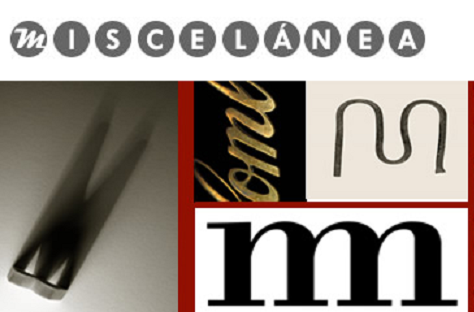«The Genteel Tradition in American Philosophy» como acusación valedora de Estados Unidos
DOI:
https://doi.org/10.26754/ojs_misc/mj.199611037Resumen
Este artículo pretende señalar algunos elementos intelectuales y culturales que construyeron la conferencia y la frase más famosas de Santayana. Escrita a raíz de los acontecimientos que transformaron Estados Unidos en el cambio de siglo, «The Genteel Tradition in American Philosophy» es más que una elaborada crítica literaria. Contiene las objeciones de Santayana a autores cuya estética canonizada había proporcionado una coartada ética para dos rasgos definitorios de los Estados Unidos de aquellos años: la injusticia social en casa y una política exterior basada en el derecho del poder. Esto nos ayuda a explicar la decisión de Santayana de abandonar América no sólo como la pose de un esteta; más bien, prevé el descontento que la intelectualidad norteamericana expresaría ampliamente la década siguiente. Por último, se ofrecen algunos comentarios sobre las limitaciones de «The Genteel Tradition» como tratado; nuestra retrospectiva de ochenta años nos permite evaluar las deficiencias de las fórmulas liberales de principios del siglo XX para superar los males engendrados por el capitalismo decimonónico.
Descargas
Citas
CONN, Peter. 1983. The Divided Mind: Ideology of Imagination in America, 1898-1917. Cambridge: Cambridge UP.
DEWEY, John. 1939. Intelligence in the Modern World. New York: New American Library.
FISHER, Philip. 1988. “Mark Twain.” In The Columbia Literary History of the United States. Gen. ed. Emory Elliott. New York: Columbia UP.
LENTRICCHIA, Frank. 1986. “The Return of William James.” Cultural Critique 4.
PERRY, Ralph Barton. 1964. The Thought and Character of William James. New York: Harper & Row.
POSNOCK, Ross. 1987. “Henry James, Veblen, and Adorno: The Crisis of the Modern Self.” Journal of American Studies 21.1.
- - -. 1991. “Genteel Androgyny: Santayana, Henry James, Howard Sturgis.” Raritan 10.3.
RANS, Geoffrey. 1965. Edgar Allan Poe. Edinburgh: Oliver and Boyd.
ROWSE, L. 1990. “Santayana, a Prophet of Our Time.” Contemporary Review 260.1517.
SANTAYANA, George. 1955. The Sense of Beauty: Being the Outline of Aesthetic Theory. 1896. New York: Dover.
- - -. 1969. The Interpretation of Poetry and Religion. Gloucester (MA): Peter Smith, 1900.
- - -. 1968. Reason in Common Sense. 1905. In Selected Writings of George Santayana. Ed. Norman Henfrey. Cambridge: Cambridge UP.
- - -. 1993. “The Genteel Tradition in American Philosophy.” 1911. In The American Intellectual Tradition: A Sourcebook. Ed. David Hollinger and Charles Capper. Vol. 2. New York: Oxford UP.
SMITH, Henry Nash. 1969. Virgin Land: The American West as Symbol and Myth. Cambridge (MA): Harvard UP.
SPRIGEE, A. 1980. “The Distinctiveness of American Philosophy.” In Two Centuries of Philosophy in America. Ed. Peter Caws. Totowa (NJ): Rowan & Littlefield.
SUNDQUIST, Eric. 1988. “Realism and Regionalism.” In The Columbia Literary History of the United States. Gen. ed. Emory Elliott. New York: Columbia UP.
SUSMAN, Warren. 1985. History and Culture: The Transformation of American Society in the Twentieth Century. 1984. New York: Pantheon.
TALLACK, Douglas. 1991. Twentieth Century America: The Intellectual and Cultural Context. London: Longman.
TANNER, Tony. 1965. The Reign of Wonder: Naivety and Reality in American Literature. Cambridge: Cambridge UP.
WESTBROOK, Robert. 1991. John Dewey and American Democracy. Ithaca (NY): Cornell UP.
WILSON, Douglas, ed. 1967. The Genteel Tradition: Nine Essays by George Santayana. Cambridge (MA): Harvard UP.
Descargas
Publicado
Cómo citar
Número
Sección
Licencia
Derechos de autor 1996 Juan José Cruz Hernández

Esta obra está bajo una licencia internacional Creative Commons Atribución-NoComercial 4.0.


